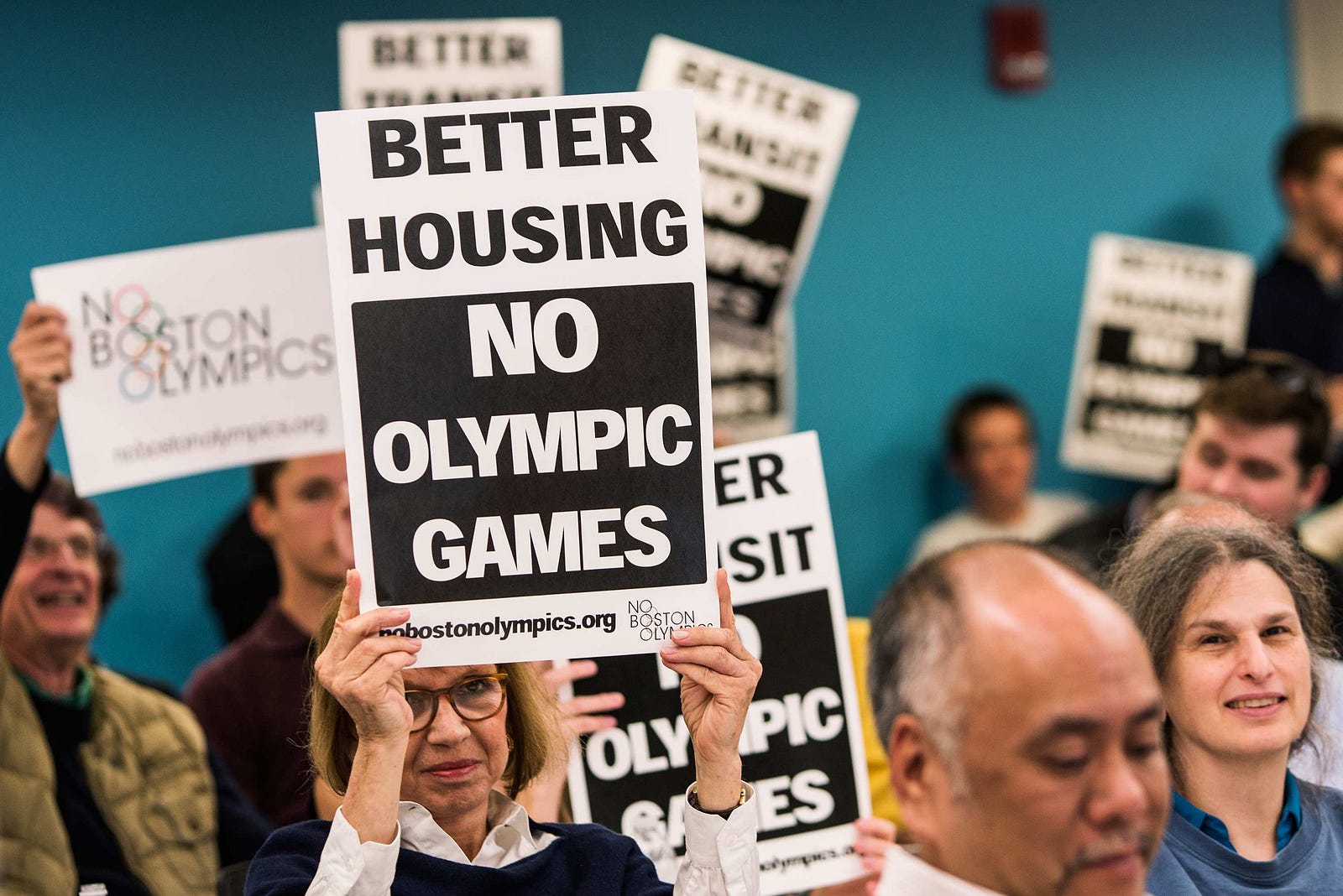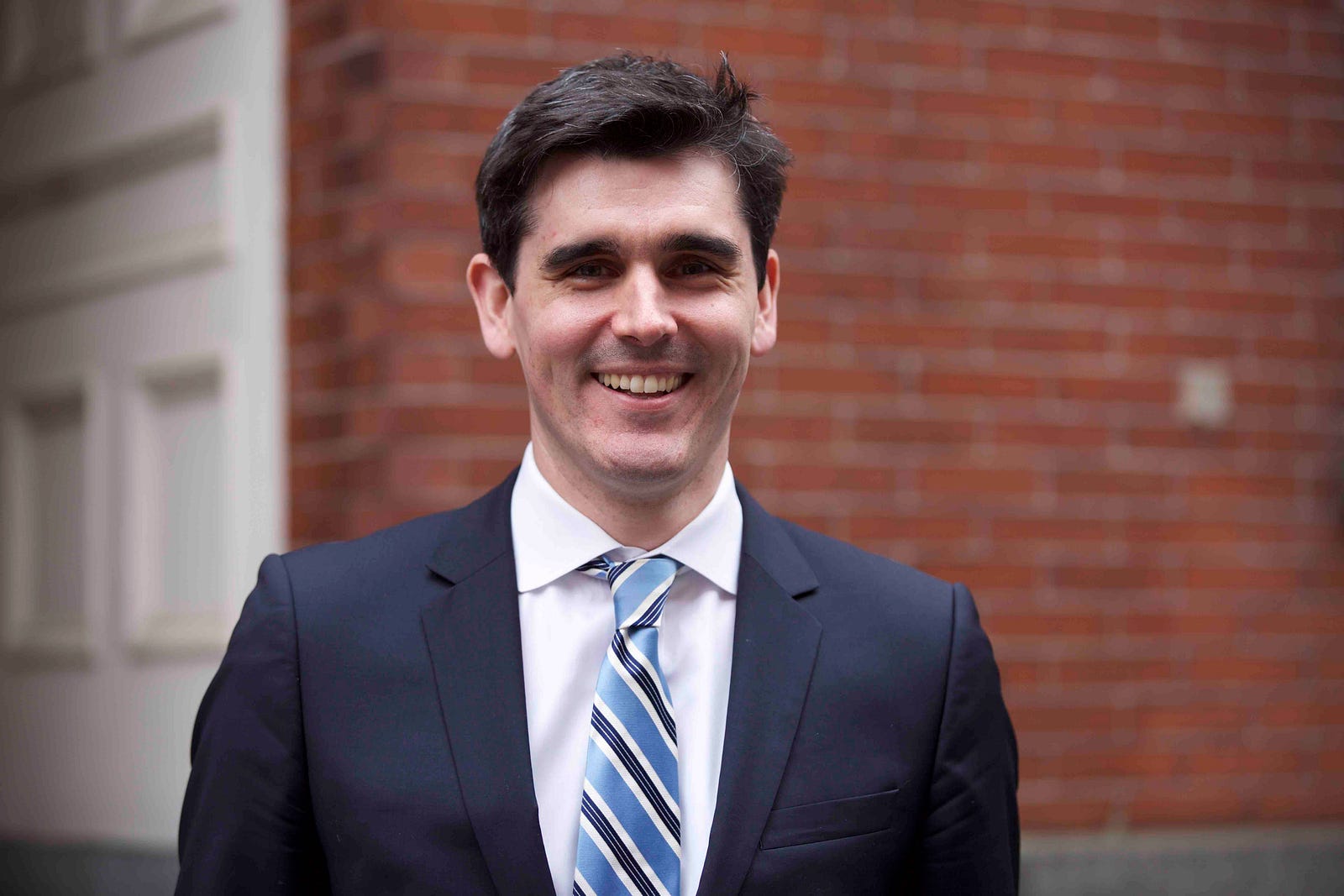
Calgary is marching toward an Olympic bid with no resistance. Why?
“This needs to be seen as a real public policy question that should be debated for the pros and cons”
It’s not difficult to argue for another Olympic bid in Calgary, a city that long basked in the afterglow of its successful and heartwarming 1988 Winter Games.
But formulating a persuasive argument against another Calgary Games is another story. How do you argue against the likes of Hidy and Howdy, Eddie the Eagle and the Jamaican bobsled team—the feel-good stories that stick in people’s minds about 1988?
Good luck with that.
“Normally, when it comes to political decisions, positive emotions are not the most motivating,” said University of Calgary political scientist Melanee Thomas. “But when it comes to this particular context, the warm fuzzies, I think, are really quite powerful.”

In Calgary, says Thomas, the pro-Olympics argument writes itself. It even has a soundtrack.
“It’s a much more elegant argument to argue in favour of the Olympics — in part because, I mean, you say ‘Calgary’ and ‘Olympics’ and the David Foster theme goes through my head,” said Thomas, referring to the 1988 song.
“There’s an emotional nostalgia that’s associated with it. But it’s an emotional nostalgia that’s based on Games that don’t exist anymore. People have to be paying attention to what’s going on in past Games to understand that, and I question how many people are doing that.”
In Calgary’s Olympics debate (or lack thereof), she sees parallels to the Brexit vote in the UK. It was easy to campaign on why the UK should split from the EU; it was much more difficult for the “remain” side to explain why exactly Brussels mattered to the nation. “There was no elegant way to even do that campaign.”
While cities around the world are steering clear of Olympic bids—or killing them decisively through referendums, as is becoming common in Europe — Calgary keeps moving incrementally toward a 2026 bid without any organized resistance from the public.
In June 2016, city council voted to create a committee of local community leaders to explore an Olympic bid. City council has continually voted to move along a bid ever since. The bid committee was dissolved last fall after issuing its final report and fulfilling its mandate.
(As an aside: exploring has been the preferred verb of civic leaders. But occasionally they let slip the p-word—pursuing—as Calgary Economic Development CEO Mary Moran did in a CBC Radio interview last week after Calgary failed to make Amazon’s HQ2 shortlist. “We are pursuing the Olympic bid,” she offered as consolation. “There’s lots to look forward to in this city.”)
To date, the city has committed more than $5 million to its Olympic pursuits. They’re working against a March 31 deadline, when would-be host cities need to declare their intent. A bid alone is expected to cost up to $30-million, and the Games themselves would be $4.6-billion, according to the bid committee’s original estimate. Estimates of this sort are almost always lower than the actual price tag, and the committee’s estimate didn’t include the cost of a new hockey arena.
For Chris Dempsey, it all has familiar echoes.
A similar process unfolded in Boston, where he lives, when city council there eyed the 2024 Summer Games.
“They kind of inched it along and made lots of promises about how nothing was being committed, that it was all kind of exploratory,” said Dempsey. “And then, seemingly overnight, it felt like it went from an impossibility to an inevitability.”
Dempsey and a few other young, politically-savvy Bostonians organized a grassroots group in 2013 to oppose a Boston 2024 bid. “We looked at it and said, ‘We think Boston has a real chance here [to win the bid], and we want people to be paying attention.’”
“This needs to be seen as a real public policy question that should be debated for the pros and cons — rather than the way the IOC wants to talk about it, which is that it’s a race and the best city’s going to win.”
—Chris Dempsey, No Boston Olympics
By informing the public about the downsides of the Olympics, the group played a big part in swaying public opinion against a bid. By 2015, Boston withdrew, citing lack of public support.
The No Boston Olympics campaign has become a template of sorts for similar campaigns in cities including Hamburg and Budapest, where Dempsey and his co-organizers have advised Olympic opponents. The people of Hamburg killed their 2024 bid in a referendum.

Dempsey gave a presentation to Calgary’s bid committee last February (at the committee’s invitation), basically telling them why a Calgary bid would be a bad idea. A committee spokesperson said afterward that the presentation was informative.
But nearly a year later, the bid process has hummed along unhindered by any significant opposition. When it last went before council in November, only four city councillors voted against it (Sean Chu, Peter Demong, Jeromy Farkas and Druh Farrell)—even after two critical reports by economists, originally kept secret by the city, were made public.
READ MORE: Hosting Olympics in Calgary could threaten Canadian economy, report says (Globe & Mail)
“This isn’t my first rodeo,” said Farrell. “I’ve seen how you can make incremental decisions that lead you to an inevitable conclusion, and I believe we’re on that path.”
“There are so many other ways to build a great city, and my worry is it will take all the air out of the room for many other projects that are necessary, and we’ll be focused solely on this.”
As cities bail on the IOC at an unprecedented rate, Calgary is in a predicament. It’s stuck between the extravagant Games of recent decades and rosy IOC promises of a downsized, affordable Games that would be less burdensome for cities.
A 2016 University of Oxford study found that Olympic Games over the previous decade cost, on average, around $11-billion each (all numbers for this story are in Canadian dollars). “The Olympics have the highest average cost overrun of any type of megaproject,” wrote the authors. “Moreover, cost overrun is found in all Games, without exception; for no other type of megaproject is this the case.”
“For a city and nation to decide to stage the Olympic Games is to decide to take on one of the most costly and financially most risky type of megaproject that exists.”
— University of Oxford study
In 2014, the IOC approved a suite of high-level reforms, called Agenda 2020, to deal with its many problems, including its notorious corruption problems and dwindling interest from cities. The reforms include things like reducing the costs of bidding process and being more transparent.
In a conference call last week with Calgary media, Christophe Dubi, the IOC’s Olympic Games executive director, emphasized that the IOC wants to make the Games easier on cities. He spoke in support of a regional Calgary bid — in which Whistler venues, for example, are used — and said the IOC has taken other steps to reduce costs, such as eliminating minimum seating capacities for venues.
It was all about a leaner, meaner Games. The IOC, Dubi said, is collaborating with cities “to design the best possible project that will fit the long-term needs of the host city.” He added that the IOC has been reviewing every Games requirement, service and space to be sure that what is built gets properly used. “There, we feel that can make some gains,” Dubi said.
“We have to make sure that… we can modify this, so that in the future we don’t overdesign and overbuild.”
—Christophe Dubi, IOC
However, Dubi balked on whether or not the IOC would reduce the number of events at the Winter Games, which have doubled since Calgary hosted in 1988.
“The IOC’s kind of in a tricky situation,” said Olympic journalist Robert Livingstone, editor of the website GamesBids.com. “It’s like, ‘Hey, we’ve fixed everything! But we don’t have any proof of it yet. And we can’t have any proof til five, six, seven years from now.’”
The clearest evidence is expected in 2028, as L.A. plans to build no new permanent venues for its Games. But that’s two years after Calgary’s Games would happen, should it win a bid.
This is all new terrain — for the IOC, for cities, for local politicians and the public which who are being asked to trust that the IOC has changed enough to deliver on its promises of an affordable Games.
“I want more certainty around what that change looks like,” said Farrell. “It’s like a relationship with a partner that continues to make mistakes, and being assured that they’ve changed.”
“I want to see evidence of that.”
The IOC reiterated last week that it would contribute $1.15-billion to the 2026 host city. The city expects all levels of government—city, province and feds—to pay capital costs for the Games.
This is one of the five principles that council approved in summer 2017: that facility costs “be borne by entities including the municipal, provincial and federal governments given that the assets will generate long term benefits for the community.”
But without more specific information—such as who exactly would cover cost overruns (historically, host cities have been the hook)—it’s difficult for critics of the Games to deliver what Thomas calls the “elegant argument.”
“In the absence of crystallizing information, people are going to default to the emotional, happy side on this issue, guaranteed,” said Thomas.
So how do you effectively resist the Olympics in a city that tends to be smitten by them?
The No Boston Olympics group focused on education. But it also crafted a narrative that wasn’t just focused on the negatives of the Olympics, but on the city’s promise—an argument that also holds a certain degree of emotional weight.
“It was important for us to be seen as proud Bostonians who believed strongly in the future of our city,” Dempsey said. “If the opposition is negative—if the opposition says ‘we can’t do it’ or ‘it’s too complex’ or ‘it’s too hard’—that’s a recipe for losing.”

“But if instead you say, ‘Look. We have this bright future as a city. We have so much ahead of us and so many good things that are going to happen because we’re a great place, and we don’t want to see that put at risk by an Olympic bid’ — that’s a message that was very compelling to people.”
It’s not a message that has ever taken strong root in Calgary.
Even before the 1988 Games, Olympic dissidents had a rough go here.
In a lunchtime speech to local developers in January of 1984, Mayor Ralph Klein railed against “financial doomsdayers” and environmental critics who dared question the Olympics.
“The Olympic Games seem to always bring out a loose coalition of dissidents, almost always well-intentioned, but generally ill-informed.” —Mayor Ralph Klein, 1984
Klein even had a name for this particular brand of dissent: “Olympic syndrome,” he called it.
“If we could accomplish one thing with the Calgary Games,” he said, “it would be my hope that, by staging a particularly successful festival of sport, we could mark the beginning of the end of this syndrome. If people around the world could use our Games as an example of how the critics were wrong, then perhaps the ‘automatic’ critics would be fewer.”
His wish hasn’t come to pass globally, where Olympic skepticism has only deepened.
But in Calgary, it seems Klein’s wish has mostly been realized. Olympic critics may not be fewer, but they’re quiet.
If they stay quiet, we’ll miss out on an important—and necessary—public debate on a project that could dominate Calgary for the next eight years.
“Even if opponents form and the bid still goes forward, those opponents will have done a service to Calgary,” said Dempsey. “Because they will have asked tough questions that other stakeholders are not wanting to ask. They will have made Calgary a better city. That dissent is good.”
Boston is better for having had a vigorous debate on the Olympics, Dempsey added.
“I think many people on both sides of the debate look back and say, ‘Thank God we had a conversation about it. And thank God we didn’t get steamrolled by the boosters and sold these promises that were never going to come true.’”
Jeremy Klaszus is editor-in-chief of The Sprawl.
This story is part of Hindsight 2026, a joint project between the Sprawl and the Calgary Journal (which is produced by journalism students at Mount Royal University). We’re digging into past Olympics to evaluate whether a 2026 Winter Games in Calgary would help or hinder our city.
Support in-depth Calgary journalism.
Sign Me Up!We connect Calgarians with their city through in-depth, curiosity-driven journalism—but can't do this alone! We rely on our readers and listeners to fund our work. Join us by becoming a Sprawl member today!
